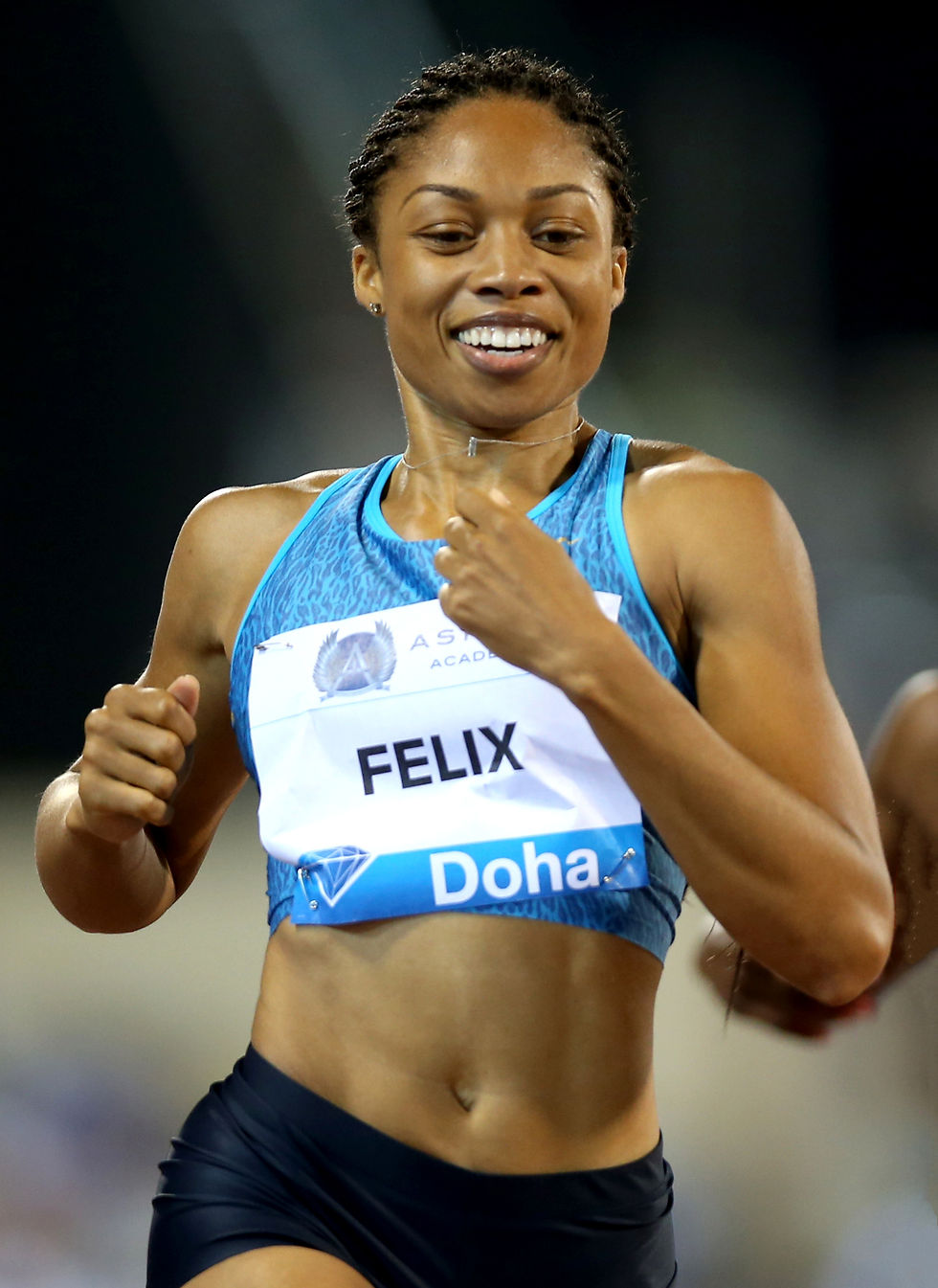Celebrate Black Breastfeeding Week with Us!
- Ellie
- Aug 25, 2021
- 4 min read

During the last week of August every year, families around the globe celebrate Black Breastfeeding Week. In this 9th year of BBW, we are celebrating the accomplishments of Black Olympic athletes who have modeled breastfeeding in public and fought for the rights of all mothers!
What is Black Breastfeeding Week and why does it matter?

Breastmilk is the perfect food for babies. Most breastfeeding organizations are white-dominated. A lack of diversity in lactation consultants, OBGYNs, and fertility doctors says it all. Advocating for breastfeeding is especially important for marginalized groups. Breastfeeding Week opens a space for Black women to speak about issues concerning breastfeeding and motherhood in general.
Maternal and child healthcare is not colorblind. Black babies in the United States have twice the mortality rate during childbirth as white babies. Each year, more than 4,000 American Black babies die before they leave the hospital. And surprisingly, education and income offer little protection. A Black woman with an advanced degree is more likely to lose her baby than a white woman with less than an eighth-grade education.
The racial disparities are not just for newborns. Black women are three to four times as likely to die from pregnancy-related causes as their white counterparts. The reasons for the divide in both infant and maternal mortality have been debated by researchers and doctors for decades. As Reported in the New York Times, “There has been growing acceptance of what has largely been, for the medical establishment, a shocking idea: For black women in America, an inescapable atmosphere of societal and systemic racism can create a kind of toxic physiological stress that lead directly to higher rates of infant and maternal death. And that societal racism is further expressed in a pervasive, longstanding racial bias in health care that can help explain poor birth outcomes even in the case of black women with the most advantages.”
Breastfeeding plays an enormous role in protecting babies from a number of poor health outcomes (both in childhood and throughout life) as well as offering substantial health benefits for the mother. Black American mothers initiate and sustain breastfeeding at lower rates than white mothers. According to the Centers for Disease Control, as of 2021, 85% of white mothers reported that they breastfeed compared to 69% of Black mothers.
In celebration of Black Breastfeeding Week, we are highlighting Black mothers who have gone the extra mile to fight for the rights of Black mothers everywhere.

Allyson Felix is a Black mother who has won six Olympic track and field gold medals, and has recently become an outspoken advocate for mothers’ rights and equal pay in the athletic world. Felix exposed the hypocrisy of Nike for failing to protect her pay as a brand ambassador after she had her first child back in 2018. As Felix revealed, Nike wanted to renew her contract with a 70% pay cut. Instead of accepting the contract, she chose to speak out about the issue, starting a movement that would help change athletic sponsorship companies to be more accommodating towards mothers everywhere.
“Thankfully, Allyson Felix... talked about [her story] because it changed the conversation and made things possible for me,” first-time Olympian Aliphine Tuliamuk told the Washington Post.

Tuliamuk doubted whether or not she was going to join the Summer 2020 Olympics when the Japanese Olympic Committee banned all foreign spectators including family members. She petitioned for the committee to make an exception as she was still breastfeeding her 7-month old daughter when the decision was made. In late June, a last minute addendum was added that allowed breastfeeding mothers to bring their infants.
Because of women like Tuliamuk who shared their stories, there is hope that future mothers, regardless of profession, won’t have to choose between their careers or their family.
Natasha Hastings, two-time Olympic gold medalist, described the pains she had to endure following her pregnancy. Hastings told the Washington Post, “There are some things I took for granted before, like my core strength and pelvic wall.” The first week she came back to training, she had problems dealing with bladder control during her workout—a common problem for new mothers.

Recognizing and talking openly about the struggles facing athletes after childbirth is an important step toward ensuring mothers receive the support they need. Hastings, and other Olympians who have spoken honestly about the pain and discomfort they experience when resuming training, are helping all female athletes feel confident in advocating for their health.
After winning the women’s 400m race in the U.S. Olympic track and field trials, Quanera Hayes posed with her son, Demetrius, and her teammate/friend, Allyson Felix, and Felix’s daughter, Cammy. After she had her son, Hayes considered leaving the sport because of her postpartum struggles, but knowing that Felix was also juggling racing and new motherhood inspired her to keep going. Hayes wrote on an Instagram post to Felix, “Thank you for using your voice to speak up for mother’s and pregnancy. Where would I be if it wasn’t for your voice.”
Sharing this victory with Felix was particularly special for Hayes because it symbolizes the progress these women—and mothers everywhere—have made toward a more equal playing field.

If you are a Black mother interested in learning more about breastfeeding and finding a supportive community, check out the following resources:
Further Learning and Support
Black Breastfeeding Week Toolkit & Resources from BlackBreastfeedingWeek.org
Breastfeeding Benefits & Challenges for Black Mothers at BlackDoctor.org
Top 7 Ways to Support Black Breastfeeding Week at LactationMatters.org
12 Organizations Supporting and Celebrating Black Moms Breastfeeding
How Systemic Racism Contributes to Less Breastfeeding Amongst Black Mothers

Commentaires